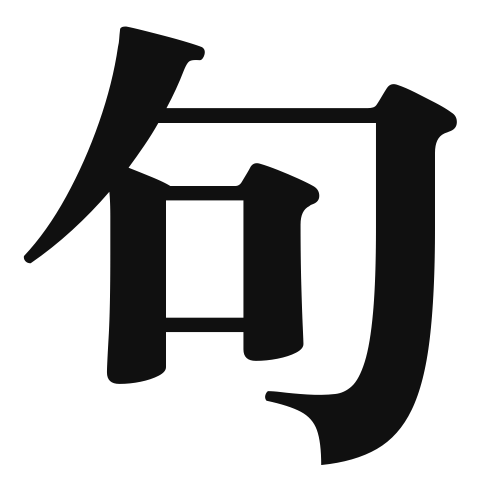1. Overview of Meaning
The kanji “句” (ku) means “phrase” or “sentence.” It refers to a group of words that express a complete thought or idea, often used in poetry and literature.
2. Formation and Radical
Formation of the Kanji: The kanji “句” is a compound character that combines elements to convey its meaning. It is not a pictogram or ideogram but rather a character that represents a concept.
Radical: The radical for “句” is “口” (kuchi), which means “mouth.” This suggests a connection to speech or expression, aligning with its meaning related to phrases and sentences.
3. Examples of Usage
Common Words and Phrases: Some frequently used words that include “句” are “句読点” (kudōten – punctuation) and “句集” (kushū – collection of poems).
Example Sentences in Daily Conversation:
- この句はとても美しいです。 (Kono ku wa totemo utsukushii desu.) – This phrase is very beautiful.
- 彼は詩の句を作るのが得意です。 (Kare wa shi no ku o tsukuru no ga tokui desu.) – He is good at creating lines of poetry.
4. Synonyms and Antonyms
Similar Kanji: A similar kanji is “文” (bun), which means “sentence” or “text.” While “句” refers to a smaller unit of expression, “文” encompasses a broader range of written language.
Opposite Kanji: An antonym could be “無” (mu), meaning “nothing” or “absence,” as it represents the lack of expression or content.
5. Cultural and Historical Background
Connection to Japanese Culture: The concept of “句” is significant in Japanese poetry, especially in forms like haiku, where brevity and expression are essential.
Proverbs and Idioms: An example of an idiom is “句に詰まる” (ku ni tsumaru), which means to be at a loss for words or to struggle to express oneself.
